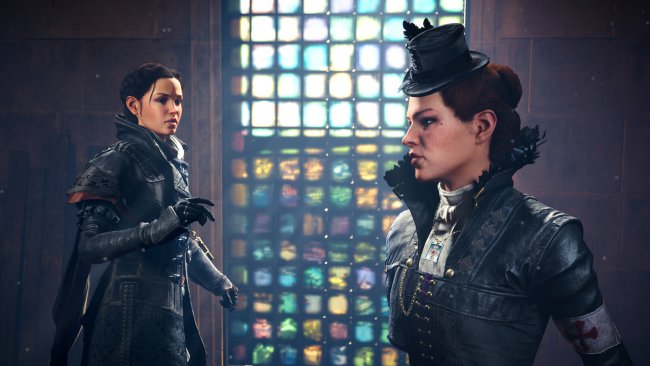Hvor mye er egentlig historisk korrekt i AC: Syndicate?
Bob Whitaker, en amerikansk historiker med britisk historie som sin spesialitet, har allerede rukket å spille gjennom Assassin's Creed: Syndicate. Med tanke på fagfeltet hans er han naturligvis godt egnet til å bedømme hvor historisk riktig det nye Ubisoft-spillet faktisk er, og inntrykkene hans kan du nå høre i den siste podcasten til Shallweshow.
Assassin's Creed: Syndicate utspiller seg som kjent i London rundt år 1868, og det viser seg at Ubisoft har truffet godt i sin tolkning av tidsepoken. Samtidig tar de seg ikke overraskende enkelte friheter.
Et utdrag fra podcasten:
The Game Overstates the Class Struggle in London:
They decided to set the game in 1868. This is the high point for the Victorian era. This is Britain coming into its own, dominating industrial production, particularly steel production and textile manufacturing. And also it's beginning to dominate financial capitalism through the world. This economic prosperity has led to a better quality of life for not just the wealthy in Britain but also the lower classes. Between 1850 and 1870, the average pay for an industrial worker doubled in Britain. In this game, Ubisoft has depicted it as an era of class struggle, but really by 1868, a lot of the heavy class struggle, the sharp divisions between the classes based on economics, has actually subsided in Britain.
In particular, in 1867, the year before this game is set, the Parliament had passed the Second Great Reform Act, which effectively expanded, or doubled, the franchise in Britain, allowing industrial laborers to vote in parliamentary elections for the first time. So Ubisoft wants to paint this as an era of Dickensian, Marxist class struggle, but at this point in 1868, a lot of that class struggle, a lot of that Dickensian nature, has actually subsided.
As the Game Suggests, Karl Marx Was a Social Democrat in 1868:
The thing about Marx is that, by the late 1860s, he is somebody who is encouraging workers to unite into parties and to actually engage with parliamentary democracy. And this pits him against the rising group of anarchists, both within Britain and also within continental Europe, who feel that the workers will never be able to achieve their goals unless they completely destroy the political system.
So I actually think the depiction of Marx in this game is pretty accurate, simply because they're showing this division between his followers and his theories compared with the anarchists, who are shown in this game with one British person hoping to blow up Parliament who ends up killing himself.

London Needs Prostitutes, But Not for the Reasons You Think
I know a number of reviews, including one by the feminist critic Anita Sarkeesian, lauded this game for the removal of the prostitutes on the streets. But the thing is, Victorian society was obsessed with prostitution, was obsessed with this idea of 'fallen women.' This was a particular point of emphasis for famous Victorians like William Gladstone and Charles Dickens. Charles Dickens, in fact, helped to run a house for fallen women to try to rehabilitate them.
I can understand why people are happy that the prostitutes are removed from Assassin's Creed, but it seemed like it would have been a great opportunity to highlight a really important moment in the history of feminism. A lot of historians, people like Judith Walkowitz and others, argue that the campaign against prostitution, against fallen women, gave rise to modern British feminism. And in particular, the campaign of British feminists against the Contagious Diseases Acts, which emerged in the 1860s.
The Assassins Should Support Gladstone Over Disraeli:
Later on in the game, about three quarters of the way through, you meet Benjamin Disraeli and William Gladstone. These two are the main political rivals of 19th century British politics. What's interesting is Ubisoft has you and the Assassins fighting alongside Benjamin Disraeli, which is very odd because Disraeli was the conservative politician facing off against William Gladstone, the liberal politician. It's true that Disraeli was known for being more supportive of workers, which would fit in more in line with the Assassins' mission in the game. But at the same time, Disraeli was also a huge promoter of tradition, of traditional values, of hierarchy in society. Furthermore, he was a huge supporter of imperialism, which seems very antithetical to the Assassins and their creed. Whereas Gladstone was a huge promoter and creator of major reforms during his time in British politics."
<bild></bild>